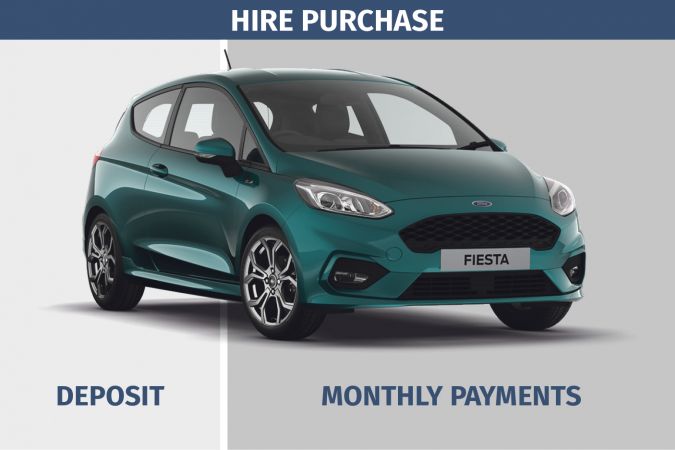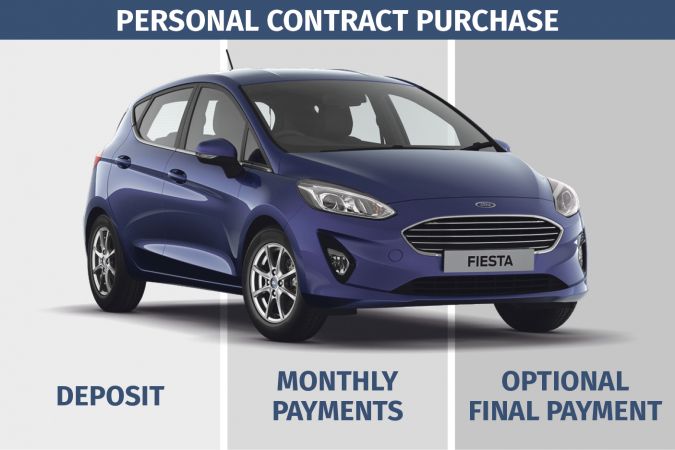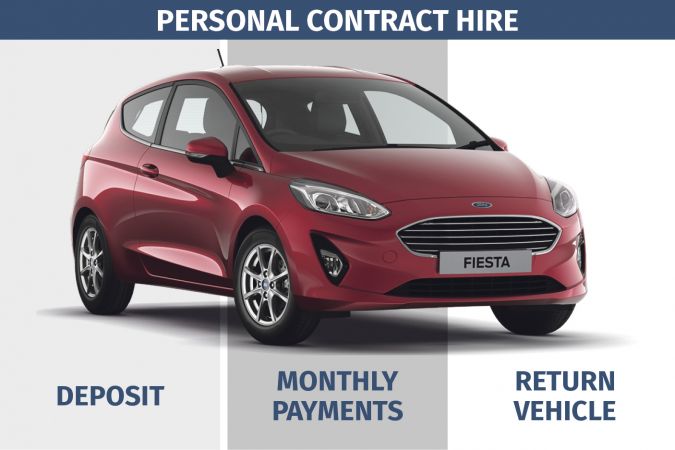Car Finance Explained
Our finance guide explains three of the most popular ways to finance your car to help you decide which is right for you.
Deciding how to finance your car is an important decision which many of us are increasingly making.
According to the Finance & Leasing Association, 8 out of 10 new cars were purchased on finance in 2018.
Finance Calculator
We have a finance calculator available for our used cars. Simply select the used vehicle you would like a quote for and click "Finance".
Contact usBut how much do you know about it?
This guide will show you three of the most popular finance plans – Hire Purchase (HP), Personal Contract Hire (PCH) and Personal Contract Purchase (PCP) – to help you decide which is right for you.
Hire Purchase (HP)
If you choose to pay for your car with a Hire Purchase agreement, you will normally pay an initial deposit and will pay off the entire value of the car in monthly instalments. When all the payments are made, the Hire Purchase agreement ends and you own the car.
Pros
You’ll be able to drive away a car that you may not have managed to buy outright. Unlike a PCP or PCH contract, you won’t need to estimate your mileage at the start of your Hire Purchase agreement, so you’ll avoid excess mileage charges.Once you’ve made your final monthly payment, you’ll have full ownership of the car.
Things to bear in mind
Monthly payments may be higher than other finance options, such as PCP, as you’re paying off the full value of the car.
You won’t be able to sell the car without settling the finance.
Personal Contract Hire (PCH)
Personal Contract Hire (PCH) is a type of long-term rental that will suit you if you’re not looking to buy the car at the end of your contract. You lease the car for an agreed period of time by making fixed monthly payments. When the contract expires, you simply return your car or take out a new contract on a new vehicle.
Pros
It’s hassle free, as you can drive away a new car without worrying about the warranty running out, or how you’ll re-sell it. Your monthly payments on the car will be much lower than if you were buying it. It’s flexible - you can change your car easily, and you will have access to new cars that you may not have been able to afford to buy.
Things to bear in mind. There’s no option to buy the car at the end. You will need to agree an approximate mileage estimate at the beginning of your contract - there may be a mileage charge if you exceed this.You’ll have to take out comprehensive car insurance - it’s not included in your contract.
Personal Contract Purchase (PCP)
Personal Contract Purchase (PCP) is similar to a Hire Purchase agreement as you will usually pay an initial deposit, followed by monthly instalments. What makes PCP different is that your monthly instalments are only paying off the depreciation of the car, rather than the entire value of the car.
How does PCP actually work?
At the start of your PCP contract, a Guaranteed Future Value (GFV) of the car is estimated. This is the car’s expected value when your contract ends.
For you, this simply means that the money you’re actually borrowing and repaying is the difference between what the car is worth now, and what it will be worth at the end of your contract (the depreciation). You’ll pay this difference off in monthly instalments.
This means lower monthly payments for you, but you will need to pay a final payment at the end (the Guaranteed Future Value) if you want to buy the car. Once your monthly payments are finished, you’ll have three options:
- Buy the car by paying the final balloon payment (the Guaranteed Future Value)
- Hand the car back - your finance company has already predicted the Guaranteed Future Value of the car, so handing the car back will settle the deal.
- Part exchange for a new car
Pros
Monthly payments on a car financed by PCP are usually lower than if your car is financed by a Hire Purchase agreement. If you decide not to buy the car, you can simply walk away when you’ve made all the monthly payments.
Similar to PCH, you can drive away a brand new car every three years without worrying about it running out of warranty, or selling it on.
If your car is worth more than the Guaranteed Future Value then you can use that equity towards a deposit on a new car.
Things to bear in mind
If you want to buy the car you will need to pay your final balloon payment (the Guaranteed Future Value) Similar to PCH, you will need to agree on an approximate mileage estimate at the beginning of your contract.
Can I settle my PCP deal early?
You can normally settle your deal early, however many finance companies will require you to pay off the difference between what your car is worth now, and what you still owe (negative equity). For example, if your car is currently worth £12,000 but your finance settlement figure is £14,000, then you will need to pay the £2,000 to clear the negative equity. Keep an eye out for early repayment charges!
Which finance option is best for me?
It depends what you’re looking for. If you’re someone who likes to change their car every three years, and you’re looking for low monthly payments then a PCP or PCH deal might suit you.
If you want to own your car at the end of your monthly payments without paying a final lump sum, then a Hire Purchase deal offers this.







